
23 September 2022 ● National STEM Learning Centre ● University of York
Organised by: Department of Chemistry, University of York
Sponsored by: Royal Society of Chemistry & GSK
Contact: katherine.manfred@york.ac.uk
Summary
A massive thank you to all our speakers and attendees! We hope you feel inspired to continue working together to achieve a more equitable research environment for everyone.
The Department of Chemistry organised and sponsored a symposium in September bringing together national stakeholders and researchers to identify ways to make research funding and culture more equitable. With funding from the department and two external sponsors (GSK and Royal Society of Chemistry), over 120 people registered for the event at the National STEM Learning Centre with an additional 50+ registered virtual attendees. Attendees ranged from undergraduate students to emeritus faculty with expertise across the full breadth of STEM subjects and from a diverse range of backgrounds and lived experiences. Nearly one third were external visitors, extending impacts from the symposium beyond the University of York.
Six talks across the morning and afternoon sessions provided valuable insights from high profile speakers, including: Professor Dame Ottoline Leyser (CEO, UKRI), Professor Anna Vignoles (Director, Leverhulme Trust), and Professor James Wilsdon (REF reform expert). More information on our speakers can be found in the drop down section below or electronic version of the event programme. Engagement from such important leaders in steering the UK research landscape ensures that equity and inclusivity considerations remain at the heart of strategy and decision-making. Through a series of focus groups, two live panel discussions, and a networking session, attendees had unique opportunities to discuss ideas with and challenge representatives from funding bodies, publishers, professional institutions, and industry on their future aims.
As Professor Caroline Dessent mentioned in her opening remarks, it was a day that would make a difference as she hoped attendees and speakers would leave with inspiration and ideas for future actions. These actions include, for example, exploring novel mentoring structures such as reverse mentoring with appropriate recognition of additional workload burdens; re-evaluating whether criteria for success allow flexibility for different capabilities and cross-over between academia and industry; and embedding accessibility in promotion and development of technical staff. The value of the event was echoed by speakers and attendees in widely shared social media posts, further increasing visibility of the areas discussed. This event highlighted that the University of York, and the Department of Chemistry in particular, is at the forefront of solution-building to encourage and support diverse talents in scientific research. By focusing on ways to shape a positive environment for different career shapes and impactful research development, it fully embodied York's commitment to serve as a "University for the Public Good" and the University’s leadership role within the UK and wider research community in EDI activities.
Sponsors:


Programme
Pathways to Equity in Research Programme (PDF ![]() , 4,131kb)
, 4,131kb)
Accessible timetable (MS Word ![]() , 13kb)
, 13kb)
|
Professor Kiran Trehan, Pro-Vice-Chancelleor for Partnerships & Engagement, University of York |
Morning Session |
Chair: Professor Caroline Dessent, Head of Department of Chemistry, University of York |
Equity & Research Culture |
Professor Dame Ottoline Leyser, Chief Executive, UK Research & Innovation Dr Daniel Smith, Head of Physical Sciences, EPSRC |
Gender & Racial Inequalities in Publishing |
Lauren Crawford, I&D Senior Programme Manager, Royal Society of Chemistry |
Panel Discussion: Research Funding & Publishing |
Chair: Dr Pooja Goddard, Senior Lecturer in Chemistry and Joint Director of ED&I, Loughborough University
|
Lunch |
|
Afternoon Session |
Chair: Professor Deborah Smith, Professor of Biology (retired), University of York |
Ableism & lived experience in academia |
Dr. Jennifer Leigh, Reader in Higher Education & Academic Practice, University of Kent |
Research Performance Metrics |
Professor James Wilsdon, Digital Science Professor of Research Policy, The University of Sheffield |
Equity & Diversity Across the Talent Pipeline |
Professor Anna Vignoles, Director, Leverhulme Trust |
Panel Discussion: Working Environment & Career Progression |
Chair: Professor Sarah Thompson, Associate Dean Research of Faculty of Sciences, University of York
|
Closing Remarks |
Professor Andy Dougill, Dean of Faculty of Sciences, University of York |
|
Optional Networking Social |
|
Focus Group Discussions
Focus group discussions will be held virtually during the week of 12 September to collect and consolidate ideas around specific topics ahead of the symposium. We have identified four key areas where we believe significant barriers to equality persist, and our expert chairs will lead discussions around how these could be addressed in the future bearing in mind the intersectionality of factors such as ethnicity, gender, class, and disability.
Attendees will be invited to indicate whether they would be interested in participating in any focus groups on the symposium registation form. If anyone is unable to attend the symposium but would like to participate in a focus group, please contact the organisers (research-equity-symposium@york.ac.uk).
Group 1: "We thank the reviewer for their comments…"
Peer Review Focus Group Insights (PDF ![]() , 1,400kb)
, 1,400kb)
Chair: Dr John Slattery (University of York)
Increasing fairness and transparency in peer review processes, including funding panels and publishing.
Group 2: "Inter-sector Partnerships"
Inter-sector Partnerships Focus Group Insights (PDF ![]() , 1,402kb)
, 1,402kb)
Chair: Dr Pooja Goddard (Loughborough University)
Improving access to external funding (i.e. industry) and removing barriers to networking opportunities with external partners.
Group 3: "Breaking & Entering"
Breaking & Entering Focus Group Insights (PDF ![]() , 1,403kb)
, 1,403kb)
Chair: Professor Anna Vignoles (Leverhulme Trust) & Dr Taryn Bell (University of York)
Addressing challenges for early career academic researchers, including finding the right opportunities, networking as a way of breaking in, and levelling the playing field in applications and interviews
Group 4: "Climbing the Ladder"
Climbing the Ladder Focus Group Insights (PDF ![]() , 1,400kb)
, 1,400kb)
Chair: Dr Jennifer Leigh (University of Kent)
Maintaining momentum mid-career and equitable progression for different career shapes
Invited speakers
Confirmed speakers & session chairs include:
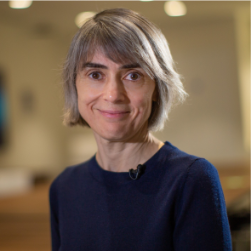
Professor Dame Ottoline Leyser (UKRI): Professor Dame Ottoline Leyser is the Chief Executive of UK Research and Innovation (UKRI) and Regius Professor of Botany at the University of Cambridge. Prior to this Ottoline Leyser was Director of the Sainsbury Laboratory, University of Cambridge, an interdisciplinary institute which combines computational modelling with molecular genetics and cell biology in the control of plant growth and development.
Ottoline has a long-term interest in research culture and chaired the Nuffield Council on Bioethics project examining these issues. She has been actively engaged in work aimed at generating a more inclusive, creative and connected culture. She has also worked extensively in science policy, for example serving as Chair of the Royal Society’s Science Policy Expert Advisory Committee, Chair of the Management Committee of the University of Cambridge Centre for Science and Policy, and as a member of the Prime Minister’s Council for Science and Technology. She is a Fellow of the Royal Society, a Member of the Leopoldina and EMBO, and an International Member of the US National Academy of Sciences. In 2017 she was appointed DBE for services to plant science, science in society and equality and diversity in science.
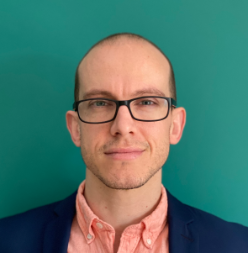
Dr Daniel Smith (UKRI): Danny is the Head of Physical Sciences for EPSRC-UKRI and is a chemist by training. After joining EPSRC in 2013, he has undertaken a range of different roles, including a policy secondment to BEIS and time in NERC as the interim Head of Partnerships. Prior to joining the physical sciences team however, he was the Head of Business Engagement, and with the team, developed EPSRC's Prosperity Partnerships into the successful £250m+ jointly funded academic-industry programme that it is today. He then joined the Physical Sciences team in 2021 to develop new opportunities in partnership with the fundamental science community. Danny has a strong focus on ensuring that we support a diversity of ideas, people and activities. This acts as a guiding principle for the physical science team, both through how we work as a team, and how we support and work with the community.
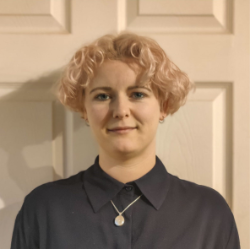
Lauren Crawford (Royal Society of Chemistry): Lauren has recently joined the Royal Society of Chemistry Inclusion and Diversity team as Senior Programme Manager, Inclusion and Diversity. Lauren has overall responsibility for the Inclusion and Diversity strategy and its implementation across all areas of the Royal Society of Chemistry.
Lauren has dedicated her career to ensuring equitable access to STEM, working across organisations such as the Wellcome Trust and BBC Children in Need, most recently in her previous role as Head of Equality, Diversity and Inclusion at EngineeringUK. Lauren currently studies physics part-time at the Open University.
Dr Jennifer Leigh (University of Kent): Jennifer Leigh is a Reader at the University of Kent. She initially trained as a chemist and somatic movement therapist before completing her doctorate in education at the University of Birmingham. She has edited or authored five books in the last five years, including Ableism in Academia: Theorising disabilities and chronic illnesses in higher dducation (UCL Press, 2020) and Women in Supramolecular Chemistry: Collectively crafting our work and lives in STEM (Policy Press, 2022). At Kent she co-chairs the Visual and Sensory Research Cluster, co-chairs the Staff Disability Network, and developed and leads the Summer Vacation Research Competition.
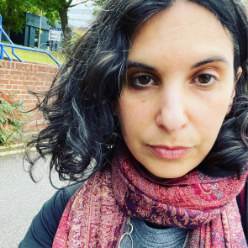
She also leads research for WISC (an international network for Women in Supramolecular Chemistry), co-leads the National Association for Disabled Staff Networks’ STEMM Action Group, and is part of the #WIASN (Women in Academia Support Network) research working group. Her research incorporates embodiment, phenomenological and creative research, marginalised identities, ableism, and bringing embodied research approaches (and glitter) into the worlds of science and public engagement. She tweets as @DrSchniff.
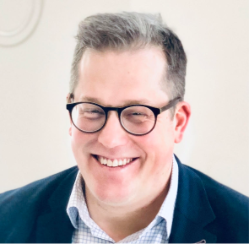
Professor James Wilsdon (University of Sheffield): James Wilsdon is Digital Science Professor of Research Policy at the University of Sheffield and founding Director of the Research on Research Institute (RoRI), which launched in 2019 with a mission to accelerate transformational and translational research on research systems, cultures and decision-making. RoRI’s consortium includes 18 research funders from 14 countries, who between them invest over US$ 23bn each year in research and innovation.
Over his career, in addition to academic posts at the universities of Sheffield, Sussex and Lancaster, James has worked in think tanks, NGOs and as director of science policy for the Royal Society. He has pioneered concepts such as upstream public engagement, science diplomacy and responsible metrics; and has co-founded or led initiatives including the International Network for Government Science Advice (INGSA); People & Planet; the Campaign for Social Science; and the UK Forum for Responsible Research Metrics.
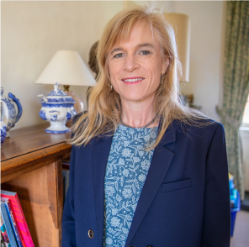
Professor Anna Vignoles (Leverhulme Trust): Anna Vignoles is Director of the Leverhulme Trust: one of the largest research funders in the UK. An education economist and previously a Professor at the University of Cambridge. Her research focuses on the relationship between educational achievement, inequalities and social mobility and the role played by skills in the economy. She has advised numerous government departments, including the Department for Education, of Business, Innovation and Skills, and HM Treasury. She has been a Trustee of the Nuffield Foundation and Member of Council of the Economic and Social Research Council. She was elected to the British Academy in 2017.

Professor Caroline Dessent (University of York): Caroline Dessent is Head of Department and a Professor of Physical and Analytical Chemistry in the Department of Chemistry at York (@ChemistryatYork). Her research group (@DessentLab) works on photoactive molecules and ensembles, with applications in biological systems and human health.
She was previously the Chair of the Equality and Diversity Group in Chemistry (2017-2021), where she led the equality, diversity and inclusion work conducted by the department. She led the Chemistry Department’s successful 2019 Gold Athena Swan award. Caroline has been a keen advocate of supporting the careers of women in science for many years, and has also been the Chair of the Science Faculty’s Athena Swan Working Group, and a member of the University’s Athena SWAN steering group. Caroline is leading a number of projects to support the career development of Black and Minority Ethnic students and staff in Chemistry, and has established a project to Decolonize and Diversify the Curriculum in Chemistry.
Professor Kiran Trehan (University of York): Kiran is Pro-Vice-Chancellor for Partnerships and Engagement at the University of York and Director of the Centre for Women’s Enterprise, Leadership, Economy & Diversity. She is a key contributor to debates on leadership, enterprise development and diversity in small firms and business. She has published extensively, including a number of journal articles, policy reports, books and book chapters in the field, and her work has been supported by grants from a full range of research funding bodies; including the Economic and Social Research Councils and Arts Humanities Research councils, government departments, regional and local agencies, and the private sector.
She has a national and international reputation in a senior research, impact capacity, embedding the complementary concerns of practitioners, policy-makers and academics by converting academic insights into effective action, policy initiatives and sustainable impact. In 2019 she was elected to be the President of the Institute for Small Business and Entrepreneurship (ISBE), the leading national body for SME research and policy learning. She was invited to be one of the lead commissioners on the West Midlands Leadership Commission to lead a new research and policy agenda on leadership diversity for Andy Street Electoral Mayor and the West Midlands combined authority. The final report was commended by the Prime Minister Theresa May and was featured in the Times Higher.
Professor Andy Dougill (University of York): Andy is the Dean of the Faculty of Sciences at the University of York. He has recently joined York from the University of Leeds where he held posts as Dean for Global Development, Dean of Faculty of Environment and Head of School of Earth and Environment. He is an applied environmental change researcher whose work integrates a range of disciplines including soil science, ecology, climate services and environmental social sciences. He has led trans-disciplinary research projects on environmental sustainability and climate change adaptation in African food systems. He has successfully built long-lasting partnerships across a range of African Universities and partner organisations through a strong commitment to impact, capacity building and research training.
Professor Deborah Smith (University of York): Professor Smith trained as a biochemist at the University of Southampton. She held positions with the Medical Research Council (MRC) at Mill Hill in London, the US National Institutes of Health in Bethesda, and Imperial College London before moving to York in 2005 to establish the Centre for Immunology and Infection and further her research into neglected tropical diseases, particularly the leishmaniases, global parasitic diseases that are endemic in parts of the tropics and subtropics including southern Europe.
Professor Smith was head of the Department of Biology at York for three years before becoming Pro-Vice-Chancellor for Research in 2014, a position held until her retirement in 2020. She has also played a leading role in championing Equality Diversity and Inclusion issues at York through her work with Athena Swan. In addition to her work at York, Professor Smith was a member of the MRC Strategy Board and co-chaired the Science Funding Panel of the Wellcome Trust from 2011 to 2014. Professor Smith was awarded an OBE for Services to Biomedical Sciences in 2010.
Panel members
We are very excited to welcome the following panellists:
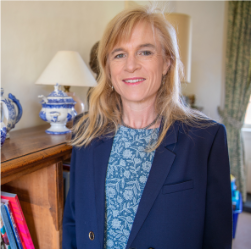
Professor Anna Vignoles (Leverhulme Trust): Anna Vignoles is Director of the Leverhulme Trust: one of the largest research funders in the UK. An education economist and previously a Professor at the University of Cambridge. Her research focuses on the relationship between educational achievement, inequalities and social mobility and the role played by skills in the economy. She has advised numerous government departments, including the Department for Education, of Business, Innovation and Skills, and HM Treasury. She has been a Trustee of the Nuffield Foundation and Member of Council of the Economic and Social Research Council. She was elected to the British Academy in 2017.
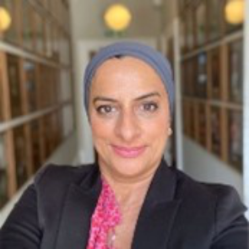
Dr Rehana Sidat (GSK): Rehana Sidat is a fellow of the Royal Society of Chemistry (RSC) with over 24 years of senior leadership experience in the Pharma industry, spanning across commercial supply and various groups in R&D. A focused, assertive, empathetic leader who holds high standards and has proven experience of transforming team performance (matrix and direct line), across diverse disciplines within and outside of her immediate domain.
Known for her authenticity, delivery and for building transparent, trusting partnerships. Rehana is an agile, courageous Senior Leader who leverages delivery through a mindset where return on investment and value add is established on the outset; examples of application include and are not limited to technical & non-technical applications, direct & matrix environments, risk compliance, and management.
Her experience & delivery exemplifies diverse leadership experience, agility in approach content and across cultures, ability to deliver complex projects, and delivery of complex R&D wide global change projects. Rehana is an incredibly passionate, advocate, ally, sponsor, coach and mentor of DEI, both within GSK and outside of GSK. For example, Rehana is on the RSC Inclusion & Diversity Committee, RSC Nominations Committee Member, and GSK R&D Diversity, Equity & Inclusion Council Member.
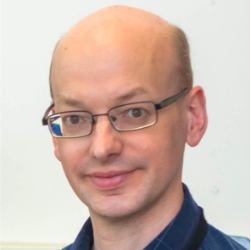
Professor Kevin Cowtan (University of York): I have spent most of my career developing software and methods for improving electron density maps and fitting atomic models into maps. I also apply the same skills to the analysis of historical climate data. I am currently exploring methods for teaching computer programming which break down traditional patterns of exclusion, in particular with respect to gender.
I am autistic and genderqueer. My autism gives me an incomprehension of people and social interactions which I have turned into an intellectual curiosity into the unwritten rules and social structures we live in, particularly around gender. I now apply this curiosity to trying to uncover hidden structural biases in the social structures of academia.

Sarah Bakewell (Institute of Physics): Sarah joined the IOP in February 2021 to provide leadership and expertise to the EDI strands woven within the Unlocking the Future Strategy.
In her role as Head of Equality, Diversity, and Inclusion (EDI) at IOP, she is currently leading on the creation of a new Inclusion Model for physics to replace Project Juno, the IOP’s gender equality award and supporting governance activity to include IOP members in delivery of the strategic goals.
Sarah leads a team of four and between them they cover all aspects of EDI including policy, working with IOP members and staff education and engagement. Sarah previously worked at AWE plc as the Diversity and Inclusion Manager where she established the EDI activity including working with the Executive to design the governance and reporting, creating five employee resource groups, delivering EDI training and activities across the organisation and attaining a Silver Award in external EDI benchmarking from enei (the Employers Network for Equality and Inclusion) for the progress made.
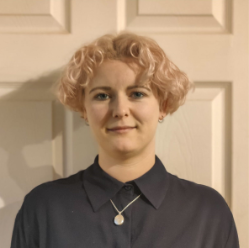
Lauren Crawford (Royal Society of Chemistry): Lauren has recently joined the Royal Society of Chemistry Inclusion and Diversity team as Senior Programme Manager, Inclusion and Diversity. Lauren has overall responsibility for the Inclusion and Diversity strategy and its implementation across all areas of the Royal Society of Chemistry.
Lauren has dedicated her career to ensuring equitable access to STEM, working across organisations such as the Wellcome Trust and BBC Children in Need, most recently in her previous role as Head of Equality, Diversity and Inclusion at EngineeringUK. Lauren currently studies physics part-time at the Open University.

Professor James Wilsdon (University of Sheffield): James Wilsdon is Digital Science Professor of Research Policy at the University of Sheffield and founding Director of the Research on Research Institute (RoRI), which launched in 2019 with a mission to accelerate transformational and translational research on research systems, cultures and decision-making. RoRI’s consortium includes 18 research funders from 14 countries, who between them invest over US$ 23bn each year in research and innovation.
Over his career, in addition to academic posts at the universities of Sheffield, Sussex and Lancaster, James has worked in think tanks, NGOs and as director of science policy for the Royal Society. He has pioneered concepts such as upstream public engagement, science diplomacy and responsible metrics; and has co-founded or led initiatives including the International Network for Government Science Advice (INGSA); People & Planet; the Campaign for Social Science; and the UK Forum for Responsible Research Metrics.
Dr Jennifer Leigh (University of Kent): Jennifer Leigh is a Reader at the University of Kent. She initially trained as a chemist and somatic movement therapist before completing her doctorate in education at the University of Birmingham. She has edited or authored five books in the last five years, including Ableism in Academia: Theorising disabilities and chronic illnesses in higher dducation (UCL Press, 2020) and Women in Supramolecular Chemistry: Collectively crafting our work and lives in STEM (Policy Press, 2022). At Kent she co-chairs the Visual and Sensory Research Cluster, co-chairs the Staff Disability Network, and developed and leads the Summer Vacation Research Competition.

She also leads research for WISC (an international network for Women in Supramolecular Chemistry), co-leads the National Association for Disabled Staff Networks’ STEMM Action Group, and is part of the #WIASN (Women in Academia Support Network) research working group. Her research incorporates embodiment, phenomenological and creative research, marginalised identities, ableism, and bringing embodied research approaches (and glitter) into the worlds of science and public engagement. She tweets as @DrSchniff.
Panel Chairs:
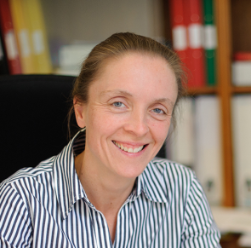
Professor Sarah Thompson (University of York): Sarah is the Associate Pro-Vice Chancellor for Research and Associate Dean (Research) for the Faculty of Sciences, responsible for strategic research decisions within the faculty, providing leadership and oversight for University level committees, and leads on university wide initiatives such as industrial engagement. A former Head of the Department of Physics, she is a member of the Condensed Matter Physics Group and her main research interests lie in magnetic thin films and multilayers and nanoscale thermal transport. She served as Vice President of the
Institute of Physics (Science and Innovation) from 2015-2019.
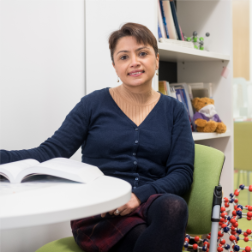
Dr Pooja Goddard (Loughborough University): Pooja is a Kenyan-Born "modern nomad". Her academic career started with a First class (Hons) MChem (Chemistry) degree from Coventry University which included an industrial placement at GlaxoSmithKline. She went on to pursue a PhD. at the University of Warwick with the late Prof. Mark Rodger, funded by industry (Cabot Speciality Fluids) and by the Warwick Postgraduate Scholarship. The project involved Computational and Experimental Studies of Formate Brines used in oil drilling applications.
In 2005, Pooja moved to the Dept. of Physics and Materials Science at Uppsala University, Sweden, on a FP7 project looking at diagnosing malaria using a magneto-optical technique which would be fast, efficient and reliable and most importantly non-invasive. After 3.5 years she joined the University of Bath as an EPSRC Research Officer working on Energy Materials such as Fuel Cells, Lithium Ion Battery materials and Thin Film PV materials. She was Senior Research Fellow at the University of Huddersfield (2012-2015), before joining Loughborough as a Lecturer in 2015. She is now a Senior Lecturer and Director of EDI (School of Science) and sits on several UKRI Strategic Advisory Teams as well as the RSC I&D committee.
Information on symposium venue
The National STEM Learning Centre is located on the University of York campus in Heslington. You can find more details on transportation and directions on the STEM Learning website.
The venue is fully wheelchair accessible, and the lecture theatre has a hearing loop. We have a designated quiet room that will be sign-posted. The Zoom meeting will have transcription capabilities enabled. Unfortunately, due to lack of availability of interpreters we will not have live, in-person BSL interpretation for the event.
For any accessibility or travel questions, please contact the organisers at research-equity-symposium@york.ac.uk
Financial support for attendees
The Royal Society of Chemistry has a number of grants to support researchers attending meetings.
Researchers development grants
If anyone is concerned about the financial burden of attending the symposium, please get in touch: research-equity-symposium@york.ac.uk
Sponsorship
Please direct sponsorship queries to research-equity-symposium@york.ac.uk
FAQs
How can I participate in focus groups?
You are invited to express interest in participating in one of four virtual focus group sessions taking place w/c 12 September on your registration form. Invitations for focus groups will be sent out around the 9th of September.
What if I have dietary restrictions?
We have requested details of any dietary preferences or requirements in the registration form.
Can I participate in a focus group even if I don't go to the event?
You can, although attending the symposium will give you a chance to hear stakeholders and experts respond to questions that arise during the focus group discussions. Please register for the event as normal and indicate that you will be attending virtually even if you cannot attend on the 23rd of September.
Can I attend the symposium without participating in a focus group?
Yes! Focus groups are optional.
Will the meeting be hybrid?
Yes, please indicate on the registration form whether you will be attending in person or virtually. Zoom links will be circulated closer to the event. If your preference changes before the event, please email us at research-equity-symposium@york.ac.uk so we can adjust for catering.
What if I have a visual impairment?
We will produce a version of our printed & digital programme for those who benefit from larger font sizes and less cluttered pages. Please be sure to indicate this on your registration form so we can have the correct number available. While slides used by presenters will not be shared, we will ask them to make sure they orally describe what each slide depicts.
In focus groups, we will have facilitators available to take notes so attendees can just focus on verbally discussing different topics
What if I have a hearing impairment?
Those attending virtually can use the Zoom closed captioning option. The video cameras are high quality, so it may also be possible to lip read. Our BSL interpreters will have a separate camera on them for clarity.
For those attending in-person, we can reserve you seats with clear view of our BSL interpreters. The lecture theatre is also fitted with a hearing loop.
Is the venue accessible for wheelchairs and mobility scooters?
Yes, the venue has step-free access with lifts and all-gender wheelchair-accessible toilets. The lecture theatre and atrium are also wheelchair accessible, but if you let us know in advance via your registration form we can allocate specific spaces in the lecture theatre. There is nearby disabled parking for those arriving by car.
Organisers
Steering Group:
Professor Caroline Dessent
Professor Mat Evans
Professor Kevin Cowtan
Dr Alison Parkin
Dr John Slattery
Dr Leonie Jones
Organising Team:
Dr Cate Anstöter
Dr Sari Budisulistiorini
Dr Will Drysdale
Dr John (Wes) Halfacre
Dr Katherine Manfred
Megan McLoughlin
Dr Beth Nelson
Dr Connor Prior
Dr Mia Shandell
Dr Luke Wilkinson
To get in touch with us, please email research-equity-symposium@york.ac.uk
